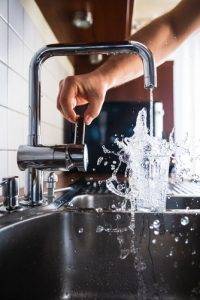There have been a lot of reports in the news regarding elevated levels of lead in drinking water. Towns like Flint, MI have received a great deal of attention due to high lead levels and contaminants in the water. Reading the headlines, these issues can feel like distant problems. However, it seems like the issue of lead in drinking water is hitting close to home. High levels of lead in school water is a serious issue and one that Pennsylvania has been grappling with. According to an article in the Pittsburg Post-Gazette, for the second year in a row PA has received poor marks from advocacy group PennEnviornment due to an absence of consistent lead testing in schools. Lead is extremely dangerous and can cause health problems for anyone ingesting it. Young children are especially susceptible to lead poisoning because they are able to absorb large amounts of it more easily than adults. While there are several measures that are being considered, from a bill that would require annual testing to replacing water lines in residential areas, at the moment the lead levels in water at schools remains dangerously high.
Can water have lead in it?
Yes, water can absolutely contain lead. Often, water will run through or sit in pipes that have begun to corrode, thereby contaminating the water with lead. Depending on the water type (acidity and mineral levels often play a part), it may have a corrosive effect on the pipes. Often older pipes are the culprit but contact with taps can also cause high levels of lead to occur.
Is it safe to drink water from lead pipes?
Ingesting water that runs through lead pipes comes with an elevated risk of lead poisoning and lead-related health problems. However, a small level of lead is deemed acceptable. According to the EPA’s standards, anything under 15 parts per billion is benign. The only way to be sure that your water is safe is to get it tested. It’s important to test your water regularly to ensure that it is free of lead. Even if your water contains low levels of lead, filtering your drinking water is still a good idea, especially in a household with small children and pregnant women, two of the most susceptible groups.
Can you get lead poisoning from water?
It is possible to get lead poisoning from water that contains high levels of lead. Testing for lead in water is imperative to ensure that your home is not adversely affected by pollutants like lead. Children and even pets are extremely vulnerable to lead poisoning.
How do you treat lead in water?
Testing your water for lead is vital to understanding what your needs are, and whether or not action needs to be taken. Clearwater Systems will come to your home and perform testing on your drinking water in order to identify pollutants, heavy metals and assist in additional lead testing through certified labs if needed. Contact Clearwater Systems today to set up an appointment!




